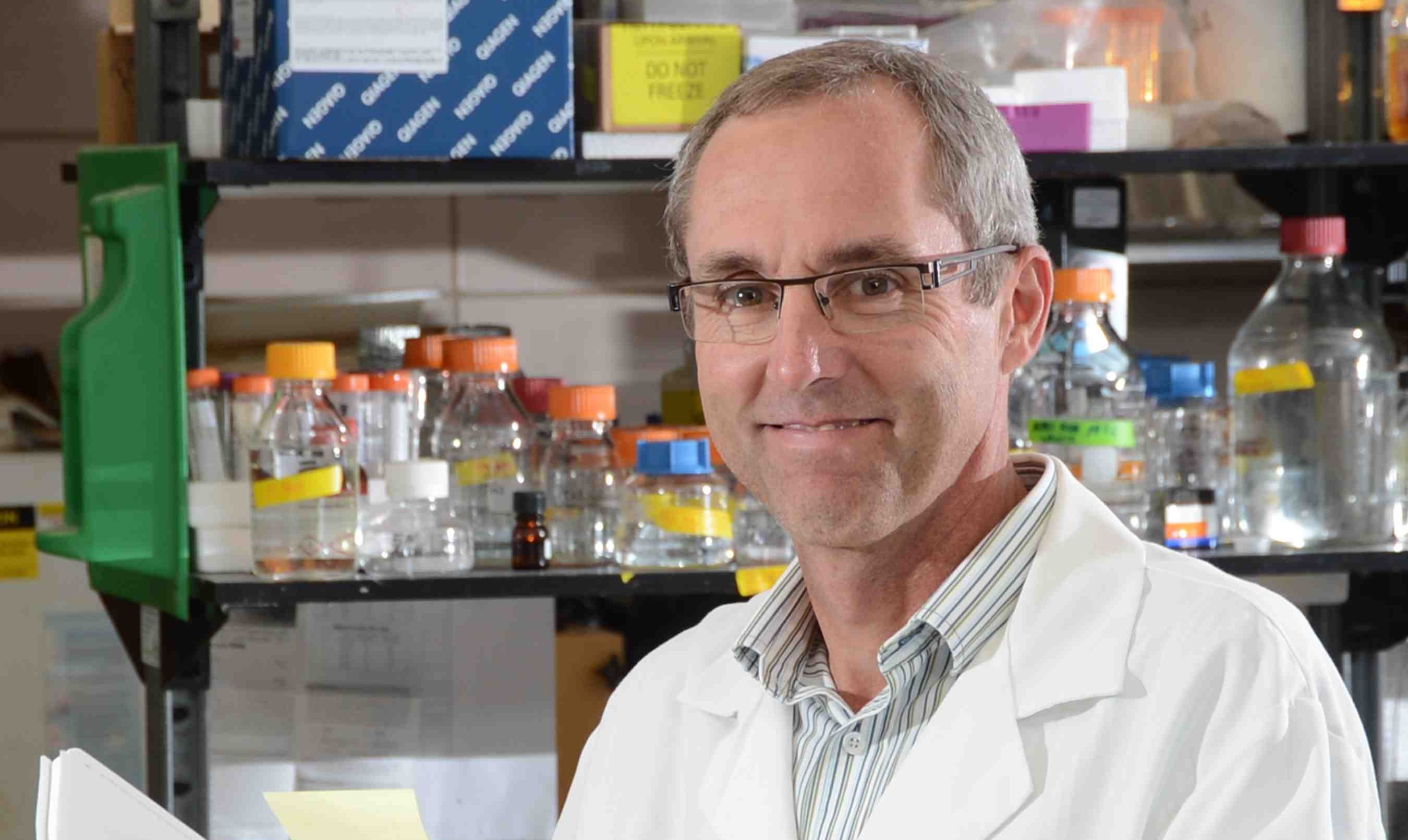
Virologist Vies To Advance Yields And Human Health
W. Allen Miller is using his understanding of viruses to aid both plant and human health.
In one such project Miller, professor of plant pathology and microbiology, is working to introduce a gene into soybeans harmless to mammals, but toxic to aphids that feed on soybean plants. He collabo- rates with entomology professor Bryony Bonning (see page 6) on the project.
Miller wasn’t always interested in the survival of soybeans.
“I became fascinated by molecular biology when I was a college student. When I went to graduate school I decided I wanted to help feed the world rather than do medical research. I would study agricultural research or biotechnology even though I had no background in plants or farming,” says Miller.
He started to focus on viruses while earning his Ph.D. degree at the University of Wisconsin. Miller is now recognized as one of the world’s leading authorities on mechanisms of barley yellow dwarf virus molecular biology.
Since joining the ISU faculty in 1988, his research has made important contri- butions to several disciplines including RNA structure and function of viruses (referring to the type of nucleic acid they use to store genetic information).
By publishing and sharing his findings, Miller has made the molecular biology world more aware of plant viruses as fascinating model systems. His work has been funded from many sources including the National Institutes of Health.
Today, Miller and his colleagues study molecular biology of plant RNA viruses from several perspectives including RNA virus replication from plants to humans.
“We employ plant viruses as easy-to-use model systems to provide basic understanding of how viruses express genes and replicate,” Miller says. “This knowledge may be relevant to major human viruses such as hepatitis A and C viruses, West Nile and more.”
While running his research lab Miller works to create a stimulating environment for students and postdocs.
“The lab is almost like a family,” Miller says. “Some of my proudest achievements beyond scientific discovery are the number of scientists who I have trained. Many of my students have gone on to very successful careers as scientists.”
Miller’s former student Elizabeth Pettit Kneller (PhD ’05 plant pathology), agrees.
“Dr. Miller is really enthusiastic about science and instills an excitement about virology in his students. He gives students opportunities to be involved with grant applications and presenting at conferences,” says Pettit, a scientist at KeraNetics, an advanced biomaterials company in Winston-Salem, N.C.
Miller recently began a faculty profes- sional development assignment at the Institute for Plant Molecular Biology in France. While on the 10-month assign- ment with the French governmental research organization, he will continue to study translation mechanisms, but with a different set of plant viruses than he studies at Iowa State. The new lineup includes viruses important to sugarbeet and potato production. He will use this new experience to build his research program at Iowa State.



